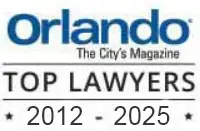Insurance plays a big (and hidden) role in a Florida car accident trial.
Suppose you are permanently injured in an Orlando car accident. Your medical expenses, lost wages, pain and suffering are causing you great distress financially, physically and emotionally. Your PIP coverage was quickly exhausted.
In such a traumatic situation, now suppose the at-fault driver has insurance—up to $300,000 of bodily injury liability coverage. This is very beneficial to your injury case.
Your attorney explains to you how the case will work: a pre-trial settlement or jury award of financial damages will not be personally paid by the wrongful motorist, but by his or her insurer. This means that you and your attorney can seek much-needed compensation from the at-fault driver’s insurance company.
Speak with an experienced Florida attorney at our firm today.
Call 855-Kramer-Now (855-572-6376).
However, if your case does not settle and goes to trial, this important fact about available insurance is not shared with the jury.
Why is that?
A Jury Is Not Told whether the At-fault Driver has Insurance
Florida legislators have agreed that juries are not allowed to know about any insurance coverage protecting the defendant. Your lawsuit must be filed against the at-fault driver, and that driver’s insurance company cannot be named as a defendant.
Therefore, throughout the trial, your attorney will verbally and in front of the jury be suing the person who caused your injuries, not the insurance company.
In other words, prior to the rendition of a verdict, Florida law prohibits your lawyer from mentioning to the jury that
- the defendant has insurance coverage
- what type of insurance it is
- the amount of coverage available
With no mention of insurance, it may seem to the jury that the defendant is personally liable for damages, and that your personal injury case is between you and the defendant – not an insurance company.
The truth is, the defendant in your car accident case generally has very little say in the matter. The defendant’s lawyer is chosen by the insurance carrier. The insurer ultimately decides how the defense will be handled. It is the insurance company that will agree to a pre-trial settlement or decide not to settle.
Jurors are not allowed to be informed of any of these facts.
Florida’s Nonjoinder Statute
Florida’s nonjoinder statute protects the insurer. The statute forbids the prosecution to state in any way that the defendant carries liability insurance and is thus personally protected against judgment.
The intent of the statute is to prevent a jury from delivering a verdict favoring the plaintiff. The reasoning behind this legislation is this: jurors really do not want to see a person suffer financial ruin in order to pay for their negligent act.
Thus if a jury knows the tortfeasor (wrongdoer) has no liability coverage (likely because he or she cannot afford it) the jury may not seek the maximum amount of compensation.
A jury is, however, more inclined to go all-out and ask for maximum damages for the injury victim when they know they are seeking financial reimbursement from the tortfeasor’s insurance company.
Whatever your stance is on this statute, it is the law. As attorneys for the injured, we are aware that this statute sometimes leads to seriously injured auto accident victims being compensated with less than their fair share of damages out of a jury’s consideration for the defendant’s financial welfare.
When Is Insurance Information Entered at Trial?
As your trial comes to an end, the jury will render their verdict on the liability of the defendant and the award of damages. Only after this stage is the insurance company’s presence disclosed in the case and “joined” as a party defendant for the purpose of entering final judgment.
If the judge enters a judgment in favor of the plaintiff, the defendant’s insurer pays the amount of the judgment up to the insurance policy’s limits.
Speak with an experienced Florida attorney at our firm today.
Call 855-Kramer-Now (855-572-6376).
What if the Damages Awarded by the Jury Exceed Policy Limits?
Suppose the jury comes back with a verdict that exceeds the at-fault driver’s insurance coverage limit.
In that case, the at-fault driver will be personally liable for the additional financial compensation, and must use his or her own assets and future wages to pay the additional damages.
Notably, if the insurer did not live up to its fiduciary duty during the pre-trial phase (when they refused to settle within the policy limits) – a personal injury case may move into the complex area of law known as bad faith law.
As the injured plaintiff, you may now take an assignment from the insured defendant to file a lawsuit against the defendant’s insurance company for the additional money through a bad faith insurance claim.
Questions about Your Florida Car Accident Case?
These simplified examples are just the tip of the iceberg when it comes to how juries, insurance (or the lack of it) and Florida statutes can affect your personal injury case.
A good lawyer must be able to foresee how the jury will view your case. Your attorney must be extremely knowledgeable of the true value of your case, and be open to the possibility of bringing a bad faith claim against the defendant’s insurance company—as well as weigh many more factors in order to realistically inform a client whether their accident case is worth pursuing.
We are always available to talk with you and answer your questions. Contact TK Law regarding your car accident case, and any legal matter confronting you.
We serve clients throughout the Orlando area and Central Florida, and welcome your call at 855-Kramer-Now (855-572-6376).











